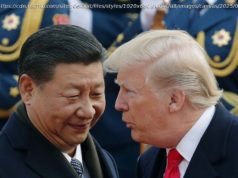Soccer is practically state-owned in China
The 2018 soccer World Cup just ended a few weeks ago.
In addition to the strong performance of the European teams in the World Cup, Asian teams have also made progress in this event. For example, although Japanese players do not have the athleticism of the European, African, and Latin American teams, the Japanese team scored in the top 16 of the World Cup by relying on teamwork and a sophisticated understanding of soccer. While in the group stage, the Koreans even defeated the defending champions Germany. Looking at the progress that the Japanese and Korean teams have made in recent years, we’re prompted to ask: where are the Chinese players?
Since the 1949 Communist Revolution, the soccer industry has been controlled entirely by the Soviet-style central planning system. Although China began market-oriented reforms in 1978 and launched a nominal professional soccer league in 1994, the Chinese Football Association (CFA) and the entire soccer industry still must obey the executive orders of the General Administration of Sport of China (GAS). Therefore, the government retains an outsized amount of control over the soccer leagues, and corruption and bribery has emerged.
Although the Chinese government dominated the anti-corruption reform of the soccer industry in 2009, and achieved the separation of the CFA and the GAS, the FA remains a puppet of the Chinese state. In 2017, the president of the CFA said that the Association and the General Administration of Sports would maintain control in the following three aspects. First, the Communist Party will continue to lead the CFA. Such a model gives the ruling party unlimited power to interfere in the CFA. Second, the continual guidance of GAS to CFA means that central planners continue to dictate to the soccer industry. Here’s the key issue: the CFA does not receive financial support from clubs and entrepreneurs. Thus the CFA is not really a market entity, and does not serve the fans who love soccer. Instead, the Chinese Football Association serves the politicians who want to benefit politically from the soccer industry.
In spite of its growing reputation for market reforms, China remains a market economy in name only, and the soccer industry is just one example of the enormous State-Owned Enterprise (SOEs) system that makes any attempt at turning China into a true market economy an exercise in futility. Since the 1994 professional reform of the soccer league, SOEs have continued to control many soccer clubs in the league. In the 2018 Chinese Super League, for example, at least six clubs are directly controlled by SOEs, and other clubs maintain close ties with the government at different levels. The leaders of the SOEs habitually obey the will of the government’s top officials, making it impossible for the Chinese Super League to serve soccer fans and consumers instead.
Moreover, China’s education system is centered around a government-controlled exam-oriented “educational” system. Needless to say, the education system thus focuses primarily on “teaching to the test” and steering students away from any other activities — such as athletics. After entering elementary school, Chinese schools are generally far more concerned with ideological conditioning of children and on preparing for exams. These factors make soccer talent difficult to find and develop.
If the Chinese state wants to truly create conditions for a more robust soccer industry, the soccer industry must be allowed to serve the fans, and not Party officials. The educational system must be allowed more freedom so that students are allowed to pursue a more diverse range of activities rather than just the few that the Chinese state has decided ought to be promoted and mandated. And, of course, Chinese soccer fans and government officials must realize that the successful development of soccer must rely on an expanded marketplace. While many countries subsidize and regulate their professional athletics industries, Communist Party control of the industry in China greatly exceeds market control. So long as this endures, the soccer industry will be governed by the whims of Party officials and will be locked out of the more dynamic market-oriented global soccer marketplace. Only after consumers and educators are allowed to more freely control what resources are to go into the development of soccer players and soccer organizations, will it be possible for the industry to really begin to accumulate the market freedom and capital accumulation that will be necessary to develop a truly competitive soccer industry.






